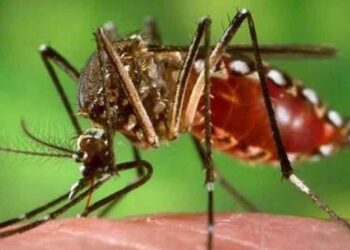The much-anticipated rollout of a new malaria vaccine has hit a snag, causing concern among health officials and communities in malaria-endemic regions. The vaccine, which was expected to be a game-changer in the fight against malaria, is now facing delays due to production and distribution challenges. This setback comes at a critical time when the need for effective malaria prevention is more urgent than ever.
Production Challenges and Supply Chain Issues
The production of the new malaria vaccine has encountered significant hurdles. Manufacturers are struggling to meet the high demand, leading to a bottleneck in the supply chain. This has resulted in delays in vaccine distribution to the regions that need it the most. The complexity of producing a vaccine that targets a parasite, as opposed to a virus or bacteria, adds to the challenges faced by manufacturers.

In addition to production issues, logistical challenges are also hampering the distribution of the vaccine. Ensuring that the vaccine reaches remote and underserved areas requires a well-coordinated effort, which is currently lacking. The delay in vaccine rollout is a major setback for countries that have been eagerly awaiting this new tool in their fight against malaria.
Health officials are working tirelessly to address these challenges and expedite the distribution process. However, the delays have already caused frustration and concern among communities that are heavily affected by malaria. The hope is that these issues can be resolved quickly to prevent further setbacks.
Impact on Malaria-Endemic Regions
The delay in the rollout of the new malaria vaccine is particularly concerning for regions where malaria is endemic. These areas have some of the highest rates of malaria transmission and mortality, and the vaccine was seen as a crucial intervention to reduce the burden of the disease. The delay means that many children and vulnerable populations will continue to be at risk.
In sub-Saharan Africa, where malaria is most prevalent, the delay is a significant blow. Health systems in these regions are already stretched thin, and the additional burden of managing malaria cases without the new vaccine is overwhelming. The delay also affects ongoing malaria control programs, which rely on a combination of interventions to reduce transmission.
Communities in malaria-endemic regions are expressing their disappointment and concern over the delays. Many had pinned their hopes on the new vaccine to provide much-needed relief from the constant threat of malaria. The delay underscores the need for robust and resilient health systems that can adapt to such challenges.
Efforts to Overcome the Setbacks
Despite the delays, efforts are underway to overcome the setbacks and ensure the successful rollout of the new malaria vaccine. International organizations, governments, and manufacturers are collaborating to address the production and distribution challenges. Increased funding and resources are being allocated to scale up production and streamline logistics.
Innovative solutions are also being explored to improve the distribution of the vaccine. This includes leveraging technology to track and manage vaccine supplies, as well as engaging local communities in the distribution process. These efforts aim to ensure that the vaccine reaches those who need it most, as quickly as possible.
The delay has also highlighted the importance of continued investment in malaria research and development. While the new vaccine is a significant advancement, it is not a silver bullet. Ongoing efforts to develop additional tools and strategies to combat malaria are crucial to achieving long-term success in the fight against the disease.









